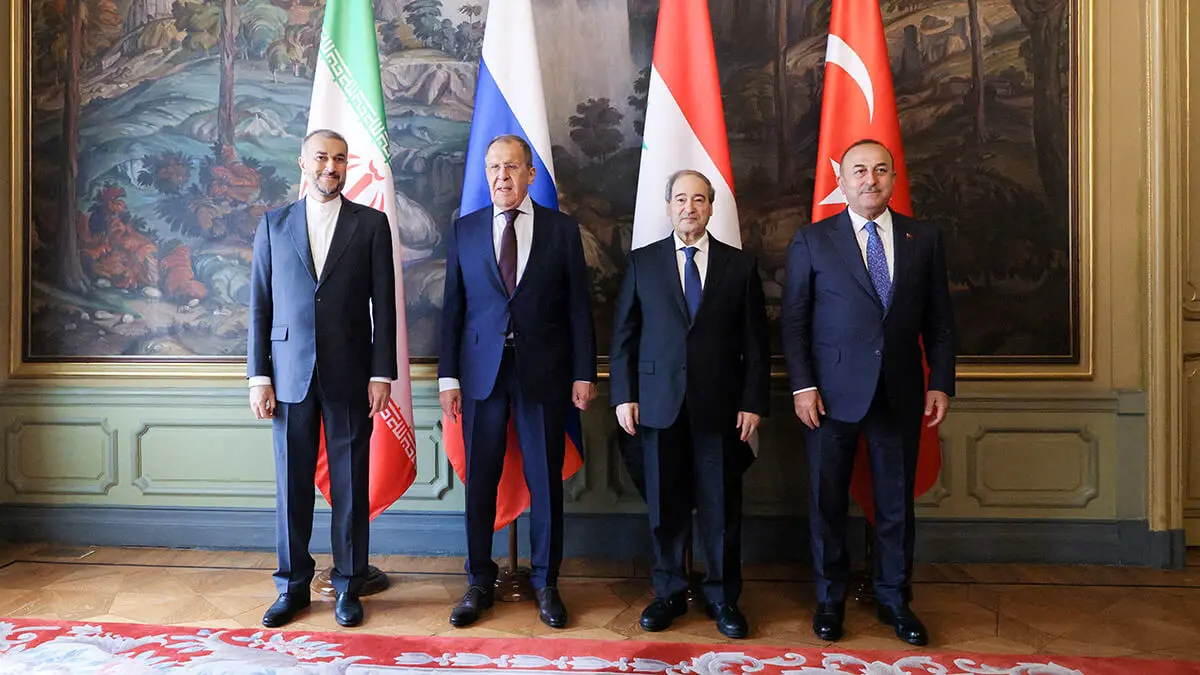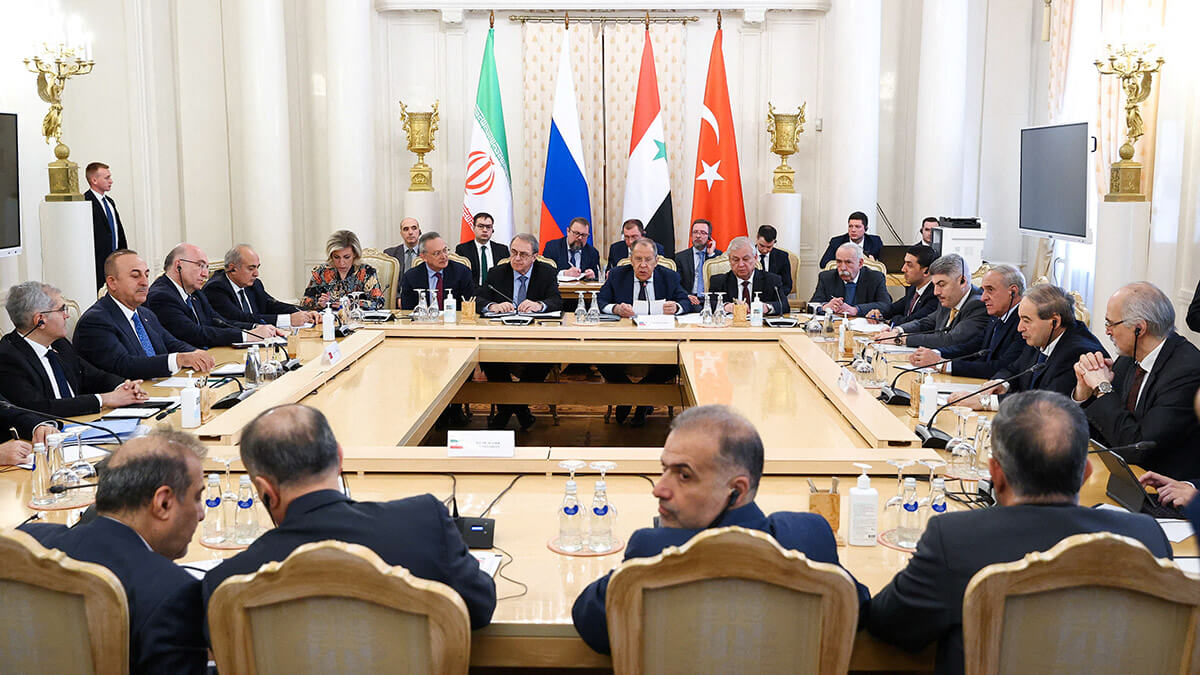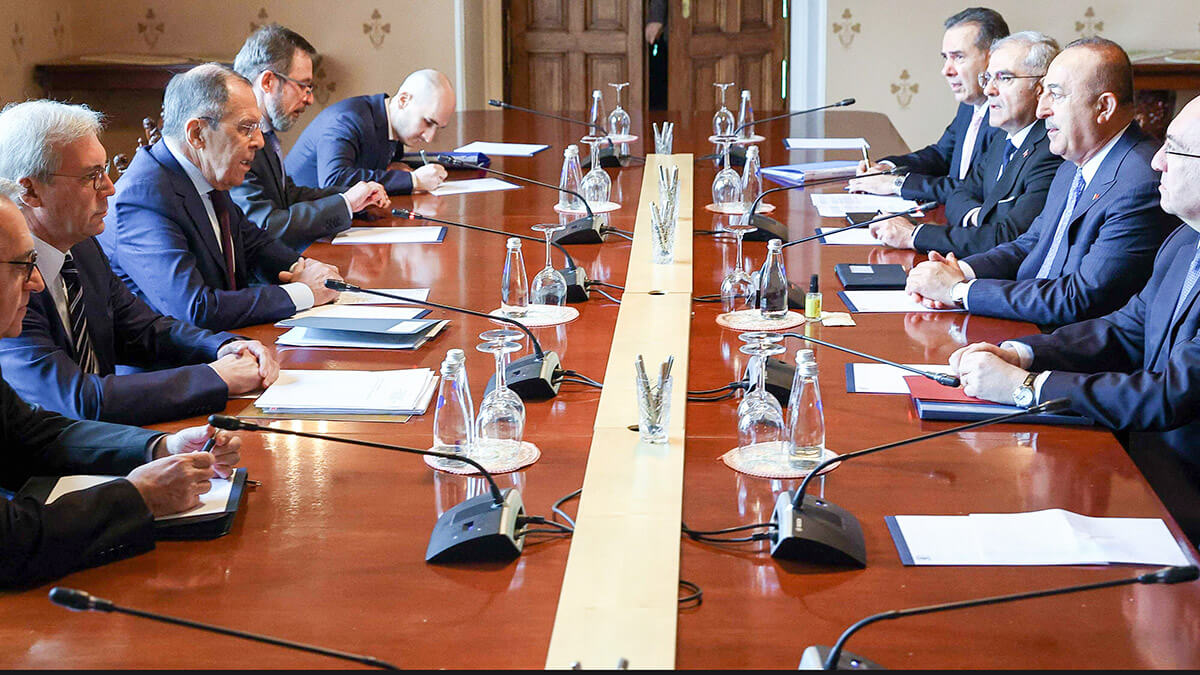Turkey and Syria move towards normalisation of relations

Turkey and Syria have taken an important step towards the normalisation of mutual ties between the two nations, under the mediation of Russia and Iran.
Russia, Iran, Turkey and Syria agreed to generate a roadmap for the normalisation of relations between Ankara and Damascus during a meeting between the Foreign Ministers of these countries in Moscow.
The diplomatic representatives of these countries "agreed to instruct the deputy foreign ministers to draw up a road map to promote relations between Turkey and Syria in coordination with the defence ministries and intelligence services of the four countries," the Russian Foreign Ministry said in an official note.

According to Russian diplomacy, "the ministers noted a positive and constructive atmosphere of the exchange of views and agreed to maintain high-level contacts and four-way technical negotiations".
Sergey Lavrov, the Russian Foreign Minister, said that 'the best result' after this ministerial meeting 'could be an agreement to instruct experts to prepare a road map for Syrian-Turkish normalisation for the next ministerial meeting', as reported by the EFE news agency. Lavrov himself advocated a return to an 'unimpeded' economic and trade relationship between Turkey and Syria.
This step is of great importance because Turkey and Syria broke off relations in 2011 when the Syrian civil war broke out in the face of accusations against the Ottoman country for supporting the rebels against the government of Bashar al-Assad. In fact, several analysts pointed to the Eurasian country for supporting the rebel side that would integrate jihadist terrorist elements in the stronghold of Idlib, where the opposition forces are lodged. Turkey also took advantage of the occasion and argued that its entry into Syrian territory was motivated by the need to pursue Kurdish elements it accuses of terrorist acts in the south of the country.

Syria has been experiencing a bloody civil war since 2011, a fierce conflict unleashed after the regime of Bashar al-Assad harshly repressed the popular revolution unleashed against him, which led millions of people to flee and seek refuge in neighbouring countries. Turkey positioned itself in favour of the rebels and relations with the al-Assad regime were severed. Thanks to the invaluable help of Russia (its main ally along with the Islamic Republic of Iran), Turkey managed to turn the tide of events and corner the main opposition forces, mainly in the last bastion of Idlib. Recep Tayyip Erdogan, the Turkish president, initially supported the rebels' efforts to overthrow Syrian President al-Assad, even with a military incursion on the Turkish-Syrian border, creating a special zone managed by the Turkish Armed Forces after taking advantage of the departure of the United States, which abandoned its presence in Syria, leaving behind the Kurdish-Syrians, opponents of al-Assad and harassed by Turkey, who were key to helping the American giant defeat jihadism in Syria.
Indeed, Vladimir Putin's Russia played host to the historic diplomatic meeting that serves to bring Turkey and Syria closer together. Moscow hosted the four-way meeting of Russian Foreign Minister Sergey Lavrov, Iranian Foreign Minister Husein Amir Abdullahian, Damascus Government Minister Faisal al-Miqdad and Turkish Foreign Minister Mevlut Cavusoglu, as part of Russia's efforts to normalise relations between Damascus and Ankara.
High-level talks on Syria begins in Moscow between foreign ministers of Türkiye, Russia, Iran and Syria pic.twitter.com/oNuyEY4oAM
— TRT World (@trtworld) May 10, 2023
Official Syrian regime media reported that the national delegation stressed the need for an end to the Turkish occupation of Syrian territories and the withdrawal of all illegal foreign forces.
Erdogan's latest policy shift to move closer to traditional enemies, such as in this case Syria or previously Saudi Arabia, may be related to the country's political and economic problems, with the aim of gaining more political leeway and having more outlets and more scope for cooperation with nations in the region, and may also have some explanation in the proximity of Turkey's imminent national elections. Reconciliation with Syria is also supported by Recep Tayyip Erdogan's opponents and plays an important role in Turkey's election campaign. The Turkish president pledged to speed up the repatriation of nearly four million Syrian refugees and migrants who fled to Turkey to escape poverty and war. Moreover, Erdogan even said earlier this year that a presidential summit with Bashar al-Assad himself could help 'establish peace and stability in the region'.
Now, thanks to these political moves and with the mediation of Russia and Iran, normalisation of relations between Turkey and Syria seems to be closer.








